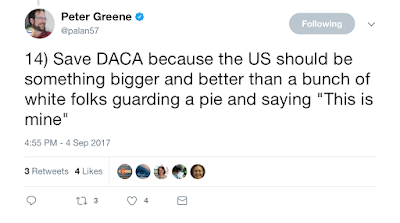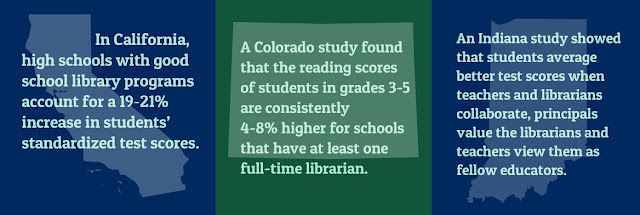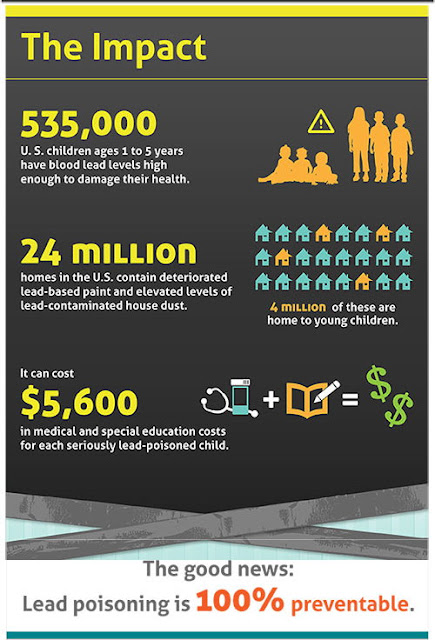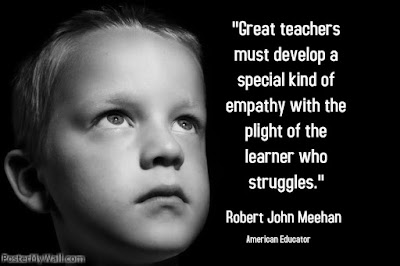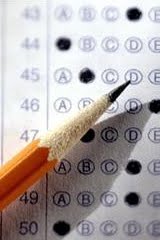Privatization, DeVos,
Public Education: A Common Good,
Poverty, Inequity, Achievement Gaps,
Lead, Competition, Words Matter
PRIVATIZATION
The dangerous rise of privatization and corporate education reform
The passage below is from an excellent post about the "fundamental elements" of the privatization movement.
When we first started fighting the corporate "reformers" in Indiana we were told that, since public schools were "failing" (NOTE: they're not...see below,
U.S. Public Schools: Success), "reform" was necessary in order to help students achieve at a higher level. Providing money to send children to private schools would help those students "stuck" in "failing" schools and give them the opportunity to achieve more.
Once it became clear that privatized schools (charters or private schools) weren't better at raising student achievement than
real public schools, the achievement of children no longer was a legitimate argument for defunding and privatizing public education. Now, the Indiana "reformers" have switched their argument to "choice" for "choice's" sake. The money should follow the child and parents have complete control of public funds used to send their children to whatever school they choose. This means, of course, that tax money is spent with no public oversight and is no more rational than a citizen "choosing" to use tax money to fund a trip to the bookstore instead of supporting funding of the public library.
It's also true that in many cases, attendance at a particular privately run school is the school's choice rather than the parent's.
"Is your child expensive to educate? Sorry we're not equipped to handle his needs." "Does your child need special education services? Sorry, we don't have the facilities to deal with her." "Are there unaddressed behavior problems getting in the way of your child's education? You'll have to take your child to another school until he can behave himself."
The point of school "reform" has never been about student achievement. It's about segregation and moving tax money into the hands of private corporations and religious organizations.
The charter school industry and their allies in the corporate education reform movement are making unprecedented gains in their effort to privatize public education in the United States.
With Betsy DeVos on the verge of becoming the United States Secretary of Education and President Donald Trump promising to divert $20 billion in federal funding from public schools to privatization through school choice programs, the movement to undermine public education must be deliriously excited about their prospects over the next four years.
Of course, the proponents of corporate education reform have been riding high for more than two decades thanks to the policies and politics of Presidents George W. Bush and Barack Obama, both of whom used their time in office to promote charter schools and the broader corporate reform agenda.
AS LONG AS WE'RE TALKING ABOUT DEVOS
Here’s How Much Betsy DeVos And Her Family Paid To Back GOP Senators Who Will Support Her
How much did Betsy DeVos spend to buy your senator's vote?
THE COMMON GOOD
Universal Public Education and the Common Good
Jan Resseger, in her blog, quotes Jonathan Kozol about public education...
“Slice it any way you want. Argue, as we must, that every family ought to have the right to make whatever choice they like in the interests of their child, no matter what damage it may do to other people’s children. As an individual decision, it’s absolutely human; but setting up this kind of competition, in which parents with the greatest social capital are encouraged to abandon their most vulnerable neighbors, is rotten social policy. What this represents is a state supported shriveling of civic virtue, a narrowing of moral obligation to the smallest possible parameters. It isn’t good for Massachusetts, and it’s not good for democracy.”
...and William Barber
In the United States, expanding opportunity for marginalized populations of students in our so-called universal education system has involved two centuries of political struggle —securing admittance and equal opportunity for girls, for American Indians, for African American children of former slaves, for immigrant students, and for disabled students—many of them formerly institutionalized. In the words of the Rev. William Barber of the North Carolina NAACP, “We’ve come too far to go back now.”
See also
Vote 'no' on charter schools by Jonathan Kozol
POVERTY: NEEDED SUPPORT ABSENT
Priorities In a School System Where Nearly Half of Students Live in Poverty
Technology is an important part of public education, and children from high poverty backgrounds need the benefits of technology just as much as wealthy children, but they also need good teachers, small classes sizes, support services (nurses, social workers, etc), a well-rounded curriculum, quality facilities, well-stocked school libraries, and a host of other social and material benefits which the wealthy insist upon for their own children (See
The Schools Chicago’s Students Deserve).
We spend millions of dollars on education every year, but it's still not a priority. States are scrambling to find the money to support their schools, but the political winds are blowing in the "no more taxes" direction. We don't want to pay taxes to benefit someone else's children. Our current plan is to move towards privatization, thinking that some private corporation will pay for educating our children not realizing that the price for privatization is too high.
In its massive diversion of funds towards technology, the proposed Operating Budget of Baltimore County Public Schools does not address the great need of all students for more support staff, and subjects the existing School support staff to ever more crushing workloads.
INEQUITY
Stopping a Disastrous Cycle
To be involved in public education is to be aware of the disparities and inequities in the nation's schools. Instead of providing more resources where they are needed, American public schools too often provide fewer resources where more are needed. This is because the locations where more resources are needed are, by definition, those places where fewer resources exist. Until we change from a society which provides more for children of the wealthy than children of the poor, our "achievement gap" will remain.
There's a telling question in this
Kappa Delta Pi article. "...why do we send our children into schools every day with...unsafe surroundings, lack of necessary materials and resources, and a staff without the specialities needed...?"
The answer, of course, is that we, as a nation, don't consider poor kids "ours." Poor kids are "theirs." "Ours" vs. "theirs" is why the US is one of three advanced nations to provide
fewer resources to poor students than to wealthy students. Americans haven't learned yet that there is a cost for providing less for some students than others – a cost of continued poverty and the need for welfare, higher rates of incarceration, and more social stratification.
"Ours" vs. "theirs" is the basis for the entire privatization movement. It's reasonable for every parent to want what is best for their own child, but the "competition theory" which pits private and privately run schools against public schools guarantees that there will be winners and losers. The goal for Americans should be to
emulate the Finns and make what is "best for my child" the same for all children. Eliminating "losers" by providing adequate resources won't hurt the "winners" and it will provide society with a larger pool of productive and participating citizens.
Imagine going into the hospital to have your tonsils removed and the operating room is filthy, the doctor is using decades-old instruments, and there are no nurses available to assist.
Most of us would turn around and run.
So, why do we send our children into schools every day with the same conditions—unsafe surroundings, lack of necessary materials and resources, and a staff without the specialties needed to address critical social-emotional issues that stand in the way of academic success?
Sadly, these students can’t turn around and run away, or at least not until they get older and drop out.
POVERTY: ACHIEVEMENT GAP
FACT – Hunger is a major contributing factor to the Education Achievement Gap.
Instead of focusing on ways to deprive public schools of the resources they need and transfer tax dollars to private corporations, our leaders' attention ought to be directed to ending the high rate of child poverty in the U.S.
The evidence is overwhelming that the lack of sufficient food undermines an individual’s ability to function and it has an especially devastating impact on children.
And hunger is a very real problem in this country, especially when it comes to a significant number of the nation’s children.
POVERTY: LEAD
House GOP quietly closes investigation into Flint water crisis
The governor's policies have poisoned thousands of children. The children of Flint – and thousands of other children around the country – are being thrown away because we can't afford to clean up our water and neighborhoods.
Here's a plan for Bill Gates, the Walton Family, Eli Broad or any other billionaire who wants to spend money on education...invest your money in cleaning up lead poisoning instead of privatizing public education...you'll get better results.
Rep. Elijah Cummings of Maryland, senior Democrat on the oversight panel, said he wants Michigan Gov. Rick Snyder to produce key Flint-related documents within 30 days. Cummings said Snyder and his administration have obstructed the committee’s investigation into the Flint crisis for a year, refusing to provide — or even search for — key documents.
Snyder’s intransigence has thwarted committee efforts to answer critical questions about what he knew as the crisis unfolded and why he didn’t act sooner to fix Flint’s water problem, Cummings said.
“Requiring Governor Snyder to finally comply with the committee’s request will allow us to complete our investigation and offer concrete findings and recommendations to help prevent a catastrophe like this from happening again,” Cummings wrote to Chaffetz. “In contrast, allowing Governor Snyder to flout the committee’s authority will deny the people of Flint the answers they deserve.”
U.S. PUBLIC SCHOOLS: SUCCESS
U.S. Public Schools Are NOT Failing. They’re Among the Best in the World
It's common knowledge that America's public schools are failing. Common knowledge is wrong.
As ever, far right politicians on both sides of the aisle, whether they be Democratic Neoliberals or Republican Tea Partiers, are using falsehoods about our public schools to sell an alternative. They say our public schools are beyond saving and that we need to privatize. They call it school choice but it’s really just an attempt to destroy the system that has so much going for it.
We should strengthen public education not undermine it. We should roll up our sleeves and fix the real problems we have, not invent fake ones.
COMPETITION
Competition vs. Quality
Peter Greene provides us with a beautiful metaphor for our national garden of children...
The goal of public education is excellence for everyone, but competition produces excellence for only a few, and sometimes not even that. It's a lousy metaphorical framework for education. Better, say, to talk about a garden on which we focus the full resources of the community to plant and water and tend living things to grow and mature without worrying about which one is tallest, sweetest or most vibrantly colored, or how we could best deprive one flower of water so that another can win a greenery contest. Education is not a race, and competition will not improve it.
WORDS MATTER
Five Strategies for Motivating the Student Who was Retained Last Year
I very much want to believe that the author of this article didn't mean for it to sound the way it did. I want to believe that she doesn't consider a child with special needs (identified or not) a burden. I want to believe that she doesn't consider children who struggle an onerous responsibility. I want to believe that she just made a poor choice of words when she said that a teacher is "saddled" with a child who is retained in grade.
Saddle, according to the online Merriam-Webster Dictionary, has as one of its meanings:
to place under a burden or encumbrance.
No child, especially those who have special learning needs, should be made to feel like they are a burden to adults whose job it is to educate them.
For my comments on
retention in grade as a method of remediation, see
Retention.
Have you ever been saddled with a student who failed the previous year in your subject and found that they were either just as motivated or less motivated than the year before? Yeah. Me too. I took some time to research some strategies that will help us motivate those students who just didn’t make it the year before and got retained. These strategies are geared toward students who failed due to lack of work ethic, not lack of ability. That’s an article for another day!
🚌🚌🚌



